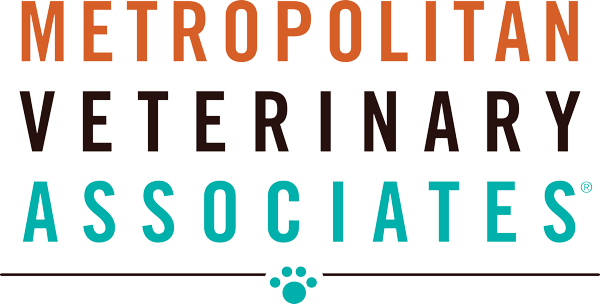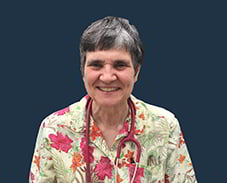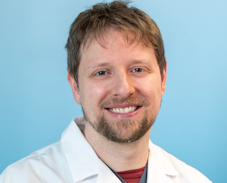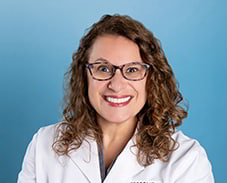There is nothing more important than your pet’s health, and hearing that they might have a heart problem is incredibly stressful. We understand that. If your family veterinarian has concerns about your pet’s heart, they may recommend a specialist. That’s where our cardiology team comes in. Our entire focus is on diagnosing and managing heart and lung disease in dogs and cats. We’re here to give your best friend the most advanced care available, and to give you the clear answers and compassionate support you deserve.
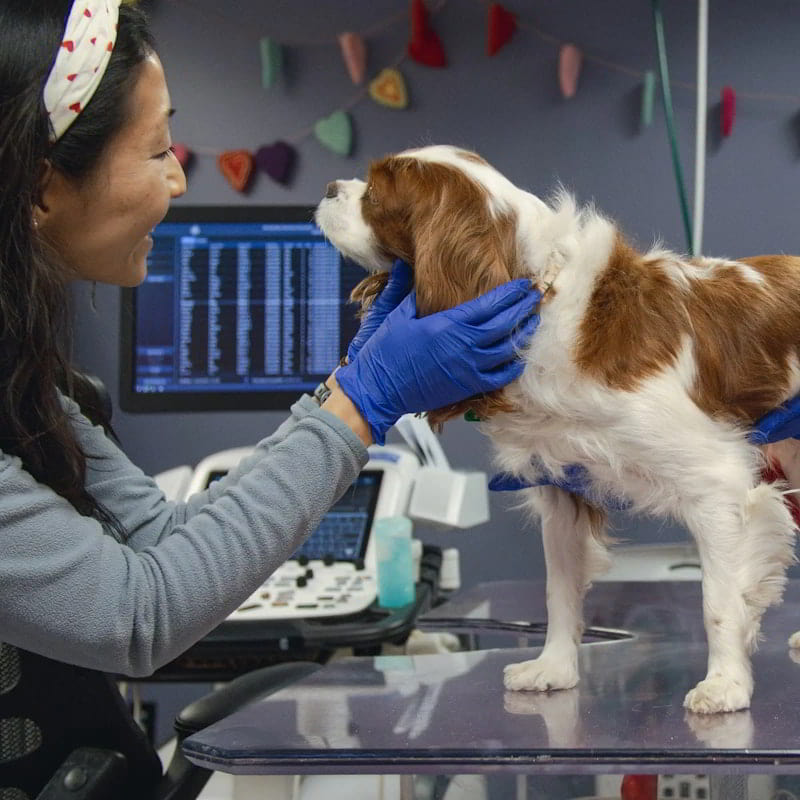
What is a Veterinary Cardiologist?
Think of a veterinary cardiologist as the most qualified expert your pet can see for a heart problem. After becoming a veterinarian, a cardiologist completes several additional years of intense, specialized training focused only on the heart and circulatory system (a residency). They are true specialists, like a human cardiologist, who have passed rigorous board examinations to prove their expertise. When it comes to your pet’s heart, you’re getting the best person for the job.
When Does My Pet Need to See a Specialist?
Usually, your primary veterinarian is the first to notice a potential issue during a check-up. We treat the full range of heart conditions, from issues present at birth (congenital) to those that develop with age (acquired), such as congestive heart failure (CHF) or valve disease. They might refer you to a pet cardiologist if your dog or cat shows any of these signs:
- A heart murmur (an unusual sound heard with a stethoscope)
- An irregular heartbeat
- Coughing, especially at night or when resting
- Labored or fast breathing
- Fainting spells, collapsing, or sudden weakness
- Seeming to get “old” or “slow” very quickly
- Blue-tinged gums or tongue
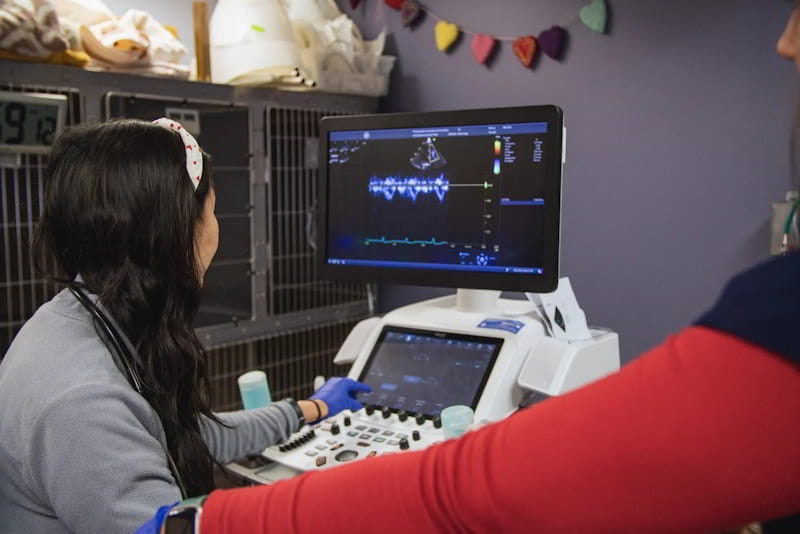
Finding Answers: Our Diagnostic Tools
To create the right treatment plan, we first need an accurate diagnosis. We use gentle, non-invasive technology to get a clear picture of what’s happening with your pet’s heart.
Echocardiogram (Heart Ultrasound)
This is the most important test we do. It uses sound waves to create a live, moving video of your pet’s heart. It’s completely painless (no pokes!) and lets us see how well the heart is pumping, check the valves for leaks, and measure the heart’s size and thickness.
ECG (Electrocardiogram)
This test simply records the electrical rhythm of the heart. It’s the best way to find out why a heartbeat is irregular (an arrhythmia) and how to fix it.
Digital X-rays
A quick set of chest x-rays helps us see the big picture. We can check the heart’s overall shape and, most importantly, examine the lungs for any fluid buildup, which is a key sign of congestive heart failure.
Blood Pressure Check
Yes, pets get high blood pressure, too! It can strain the heart, so we make sure to check it and get it under control.
Holter Monitor (24-Hour ECG)
If your pet only faints or has an episode every once in a while, it’s hard to “catch” it in the hospital. A Holter monitor is a small vest your pet wears home for a day, allowing us to see what their heart rhythm is doing during their normal routine.

Meet Our Cardiology Team
Our cardiology department works as a team with you, your primary care veterinarian, and MVA’s other specialists—like oncology, radiology, and critical care—to ensure your pet receives seamless, world-class care from diagnosis to recovery.
If you are concerned about your pet’s heart health, please talk to your primary veterinarian about a referral to one of our specialty cardiology departments at either Metropolitan Veterinary Associates or Hickory Veterinary and Specialty Hospital.
